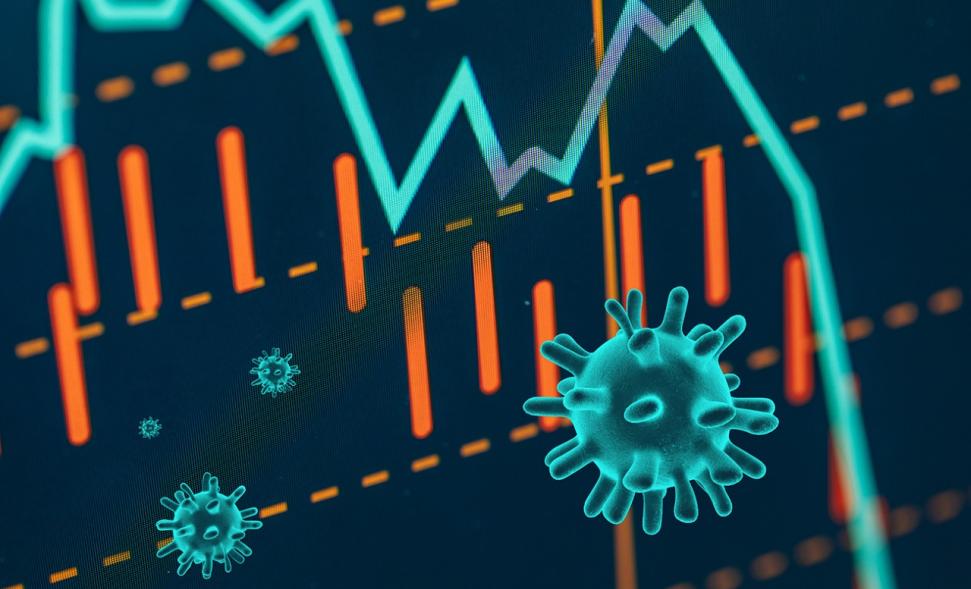
Coronavirus has deeply affected all aspects of global economy causing an unprecedented drop of - or even freezing - activity across almost all industries. Even though Greece is not listed in the countries which are severely hit by the virus in terms of infection cases and life losses, the economic implications are still hard, especially in the domains related to tourism and transportation. Less but not insignificant impact is observed in renewable energy, which had a great start at the beginning of the year with the announcement of state decisions supporting the energy transition towards a greener future, that consequently boosted investments in the sector. However, this dynamic kick-off may be jeopardised by these four main drivers shaping the new energy landscape: the change in electricity demand; the short-term delays in infrastructure construction; the competitiveness of fossil fuel alternatives; and the considerations for mid to long-term economic recession.
Electricity demand
The impact on electricity demand is already obvious due to the reduced operation of the commercial sector and especially hospitality and retail. Only during the week of 16 to 22 March, that is before the application of very strict circulation measures, the drop in Greece amounted to 5%. In case of full lockdown, this decline can be much deeper (for example, it reached up to 20% in Italy). The decrease in demand signifies two things:
- There is no need to build new infrastructure for electricity generation in order to substitute the old retiring power stations; and
- Power prices are reduced, thus affecting negatively the revenue of renewable assets and their overall business plans.
These implications are relevant in the case of persisting lower demand and all things being equal, demand is expected to return to normal levels once coronavirus restrictions are lifted. However, there is uncertainty as to when restrictions will eventually end, and people start moving around and travel. Greece is dependent on the revival of transportation not only domestically but also abroad, since a very large part of tourism – and the corresponding electricity demand – relies on visitors from other countries. Moreover, even if the situation is restored during summertime, a new wave of the virus from autumn on could drag demand back down again. Finally, if the coronavirus crisis provokes an economic downturn, albeit the immediate danger has passed, future demand will continue being lower than projected in 2019.
Supply chain for new infrastructure
With regards to the construction of new renewable assets, delays are faced due to the supply chain bottlenecks in Asia. Most of PV panels and inverters are currently imported from China where manufacturing and transportation have slowed down or halted due to the virus, thus causing delays in delivery that can reach up to 90 days in case force majeure contract clause is activated. Although this setback does not seem to affect the price of existing contracts, a price spike is predicted in PV industry as a result of component shortage, such as solar wafers and module glass, and limited availability of human resources. The spike is expected to smooth out in Q3 2020; however, it may last longer if China decides to set more aggressive goals regarding its internal PV installations in order to reactivate economy (shift from 30GW to 50GW according to estimations). In this case, the Chinese market will absorb a big part of PV panel production, keeping demand – and consequently prices – high in global scale. Moreover, it is worth noting that construction is not only postponed because of procurement difficulties but also due to the temporary banning of physical meetings and presence of workers on site. Focusing on Greece, although the PV and wind assets competition organised for April was completed according to schedule, there is strong pressure on RAE to defer the upcoming competition planned for June/July towards the end of the year, in order to allow market turbulence to calm down.
The impact of oil sector
Another factor influencing the deployment of the renewables agenda is the situation in the oil & gas sector which has been shocked by both coronavirus and political decisions. Given the abrupt plummeting of transportation and general industrial and commercial activity, the demand for oil is expected to decrease by more than 9% globally compared to IEA predictions for 2020. In the meantime, the end of restraints on production from OPEC producers and Russia (OPEC+) has led to a steep supply increase. Both levers combined have caused a price collapse in oil prices from $68/barrel at the end of December, when coronavirus started spreading in Wuhan, to $23/barrel at the end of March, drifting gas prices down, too. As a result, oil giants that had placed the transition to green energy at the top of their agendas now have to set the compensation of losses as a priority.
Apart from lower oil prices, with renewables becoming less and less reliant on subsidies due to their reducing cost and the diverted attention of governments from clean energy towards health industry funding, fossil fuel electricity generation may become cheaper, therefore more attractive for investors. A contributor to its competitiveness is also the sink of CO2 allowances price by 30% since the beginning of March, triggered by the drop of power demand. Subsequently, with overall lower oil and power prices, energy efficiency loses its appeal and initiatives such as retrofitting homes and shifting from combustion to electric vehicles get at stake. After all, CO2 emissions may well fall anyway in 2020, due to the impact of coronavirus on global economy, particularly transport. For example, CO2 emissions in China reduced by 18% compared to usual levels at the end of March, even though power demand has now returned almost to normal.
In Greece, ambitious environmental targets were set in December 2019, i.e. the phase-out of lignite in power generation by 2028 and the goal for renewables penetration at 35% of energy mix by 2035. In addition, large-scale renewable projects are currently awarded via auctions but continue to be also supported by premium tariffs. These measures are definitely in favour of renewables but on the other side, they were taken before the coronavirus outburst, so radical decisions such as the closure of lignite plants may now get postponed. Moreover, regarding auctions, the long-term goal is to achieve such tender prices that it would no longer be necessary to provide subsidies to make renewables business plans viable. In case of subsidies abolishment and persistence of low gas prices, even if lignite plants are eventually shut down, cheaper and agile gas plants without intermittency issues may get their place instead of wind and solar.
Can a recession turn into opportunity for renewables?
In a nutshell, all the obstacles stated above stem mainly from the turmoil caused by coronavirus and the inability to define when the economic situation will again stabilise. However, the biggest risk for renewables infrastructure is the mid- to long-term implications of the virus and the fear around the possibility of a broader recession in the upcoming months or years. This uncertainty may detain the financing phase of new projects, as investors reassess risk or wait until they receive more clear signals from the market. Such signals will become more available when the virus is set relatively under control, energy conferences are held as planned after the movement restrictions lifting and governments start announcing news or measures around energy industry.
Greece has recently started coming out of a deep recession during which the state aid for many industries, including renewables, had ceased. Therefore, there is no guarantee that such an event won’t happen again in the future. Nevertheless, there is also a positive consequence out of the current difficult environment; the interest rates are now declining further, making the financing of large-scale infrastructure projects more affordable. Therefore, governments, and Greece in particular, can seize this opportunity and support the deployment of renewables in order to achieve a dual benefit: stimulate their economies in the post-coronavirus era and accelerate clean energy transition.



